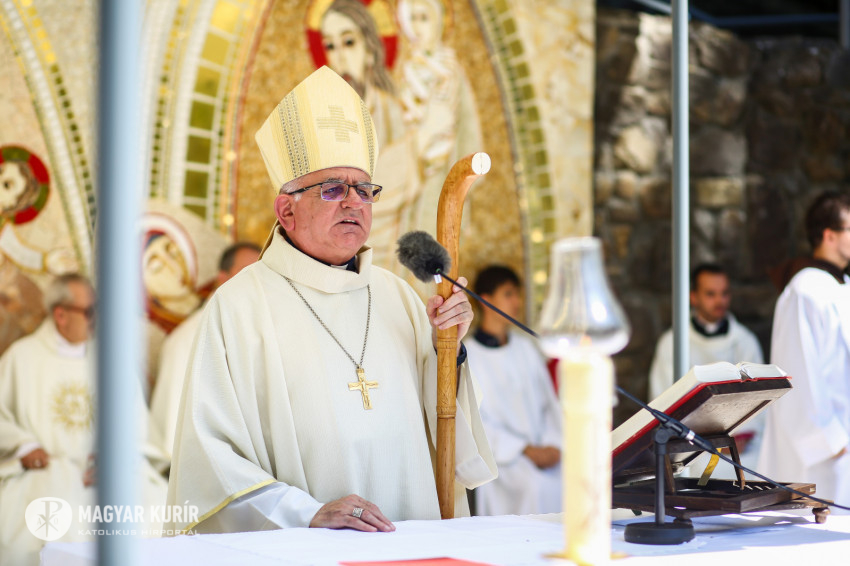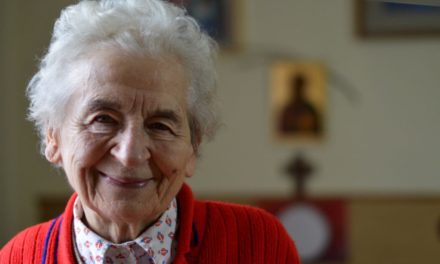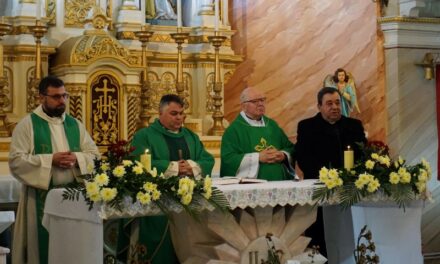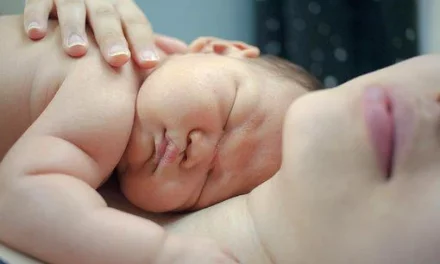On the morning of Tuesday, August 2, a pilgrimage for the residents and staff of the social homes was held in Mátraverebély-Szentkút. Kaposvár county bishop László Varga presented an outdoor concelebrated mass at the national shrine.
The Gospel was told from the Gospel of St. Luke, the announcement of the birth of Jesus, through the archangel Gabriel (Lk 1,26-33).
In his homily, Bishop László Varga testified about how he experienced the healing power of the sick, the holiness of the will to live, on a "sick brother of ours". Decades ago, he was a chaplain in Várpalota when an "evangelical brother" informed him that there was a very sick man in Pétfürdő whose mother had died. Would you like to visit? Father Laci Varga naturally said yes and found a man who had been lying motionless for thirty-five years. At the age of fourteen, he was bitten by a tick, contracted meningitis and was completely paralyzed. His mother fed him, bathed him, cared for him with love for thirty-five years, but she died. The man named Jóska was desperate and rebelled. He rebelled against God, against the world, against life, saying only one thing, "I want to die, I don't want to live."
When Father Laci visited him, he was in a terrible state. He was so tormented by the loss of his mother that his pores and skin hurt, and he couldn't get dressed. His legs were withered from lying all the time, he had painful bedsores on the side he lay on all the time, but his soul hurt the most. They covered his body with a thin curtain so that he could stand it. At their first meeting, Father Laci asked him:
have you taken the sacrament of the sick yet? He said no, no one had ever offered him that in thirty-five years.
The young chaplain gave him the sacrament of the sick and prayed for his recovery. When he went back to him two weeks later, he found a man healed according to the Scriptures. Jóska's physical torment ceased, she was dressed, her bedsores did not hurt, and in fact, she was able to move her two withered legs for the first time in thirty-five years. His mental illness also disappeared, he did not want to die, but to live. He still couldn't get back on his feet, yet he was full of gratitude for how much God loves him.
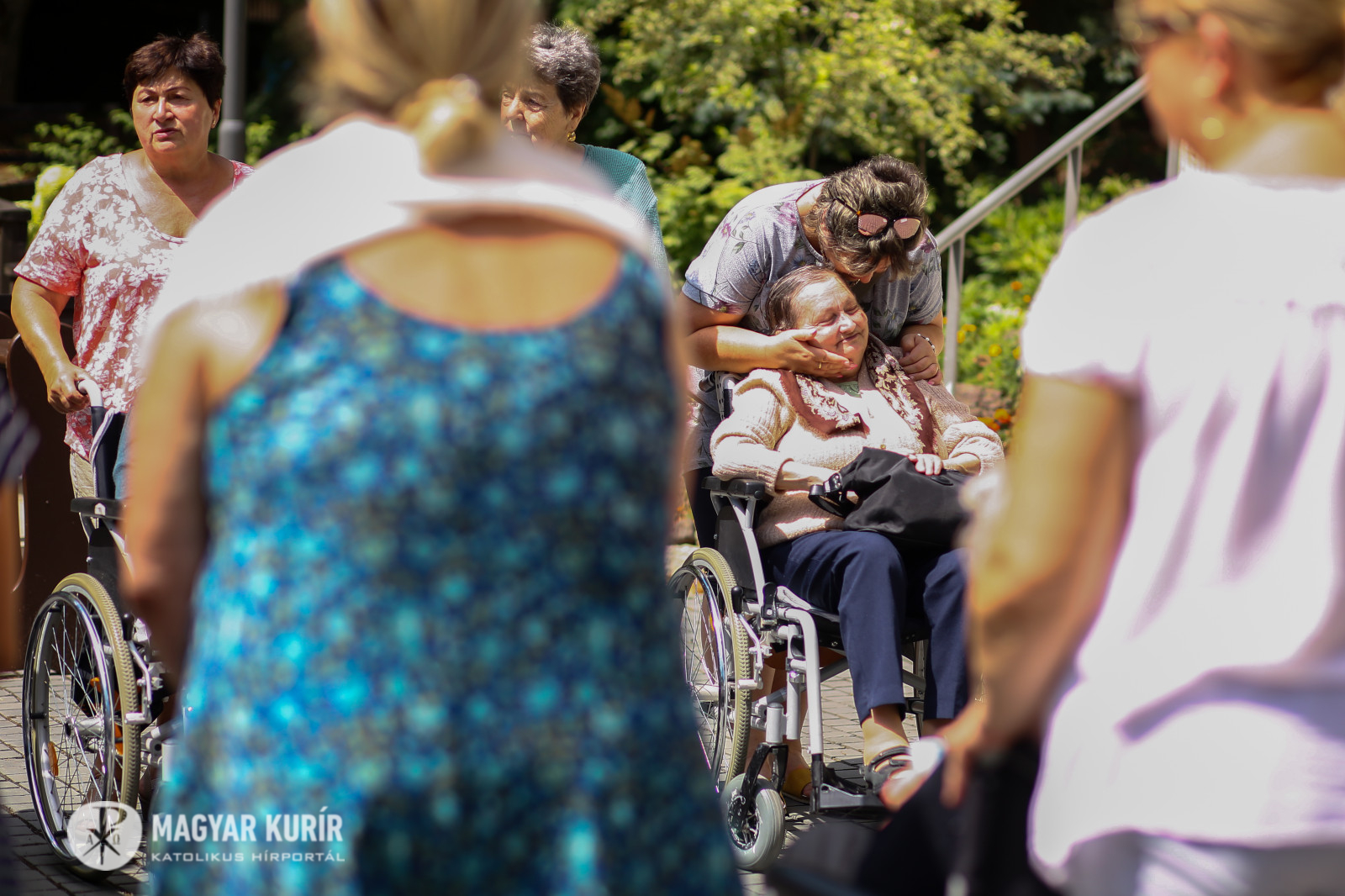
Source: Hungarian Courier
Shortly after meeting Jóská, the then bishop appointed him parish priest in Somogysámson. Jóska wanted to be in a place where she could pray. When Father Laci asked the head pastor if he could accept Jóska into his parish, because the Good Lord was asking him to do so, the bishop approached him and hugged him. All he said was: "The poor and the Eucharist are the future of the Church." He probably said this because Father Laci also asked him to have a chapel in the parish where the injured could go, because he was sure that if he accepted Jóská, others would come too.
"I believe that if our Church turns to our wounded, broken, poor brothers and sisters and not only does charity, not only distributes alms, but allows them to have a personal relationship with the Christ who lives in us through these people, then the Church will be renewed," said Bishop László Varga.
The aforementioned Jóska lived in Father Laci's parish for seven years, until her death on earth, all the while shining with gratitude and joy at how much God loves her. According to the Scriptures, he was healed because he had a living relationship with the Lord Jesus, he prayed six hours a day for others.
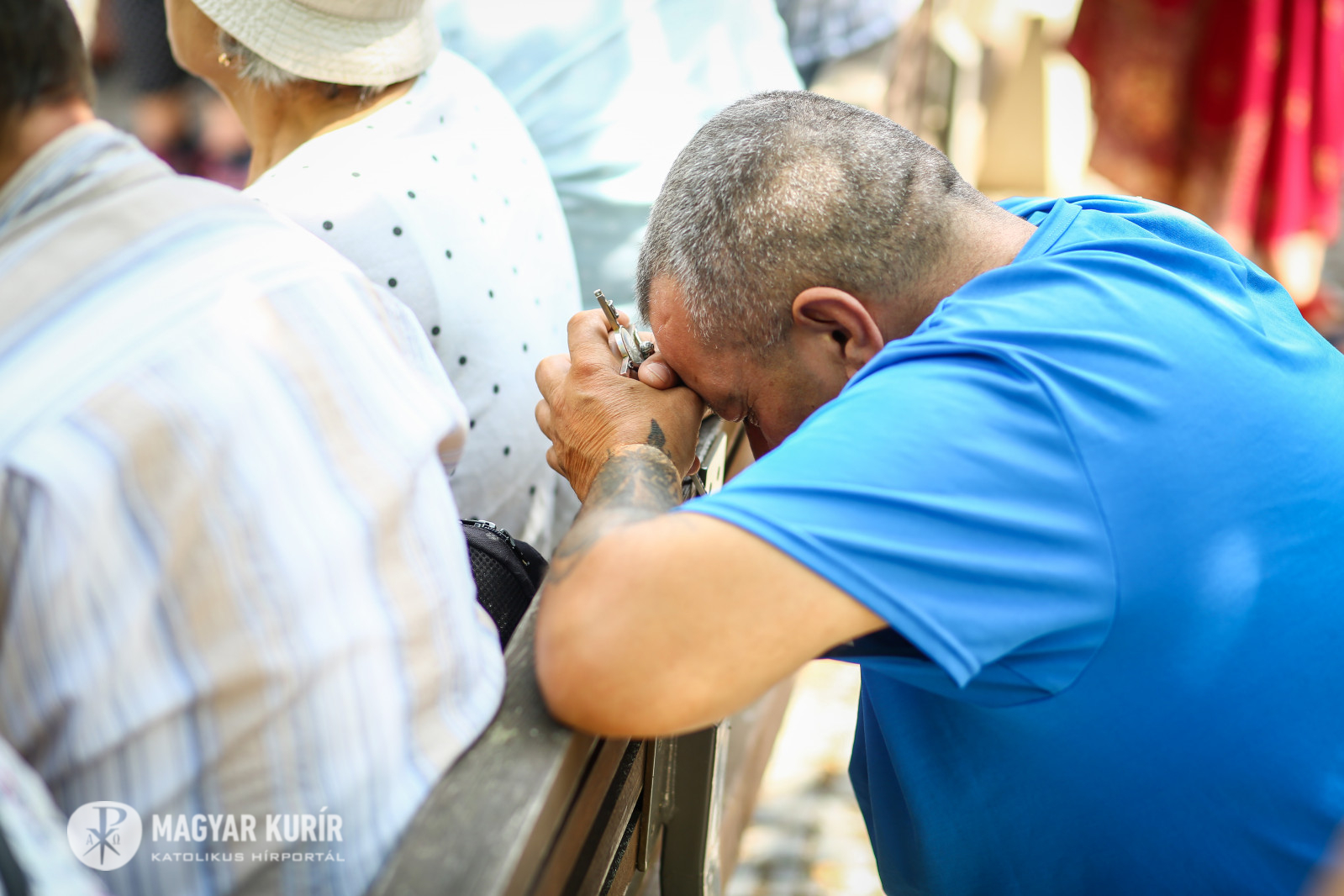
Source: Hungarian Courier
With this faith, accept the sacrament of the sick when you ask, and with this faith we priests also give up the sacrament of the sick. The Lord Jesus Christ wants us to live and be saved. In the name of the Father, the Son and the Holy Spirit. Amen! Kaposvár County Bishop László Varga concluded his homily.
At the holy mass, the head pastor and the priests and monks concelebrating with him gave the anointing of the sick to the pilgrims.
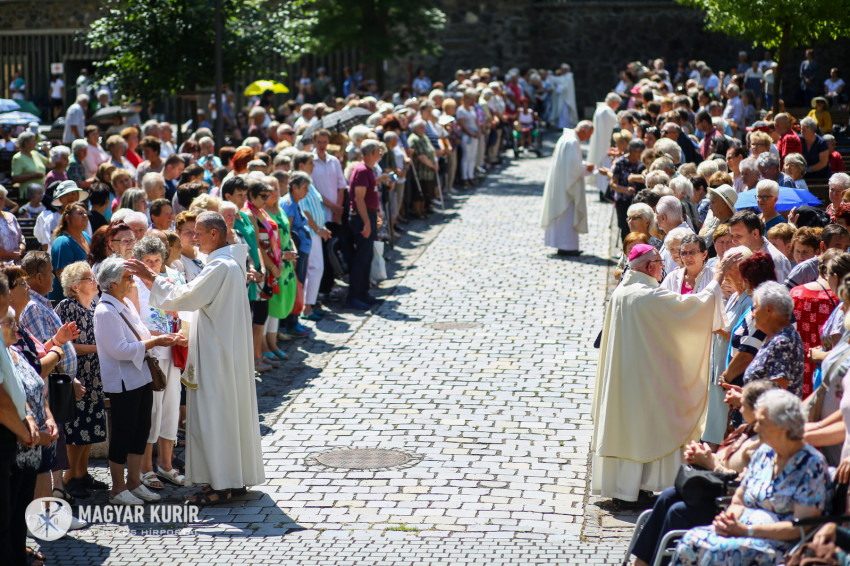
Source: Hungarian Courier
Source and full article and featured image: Magyar Kurír

